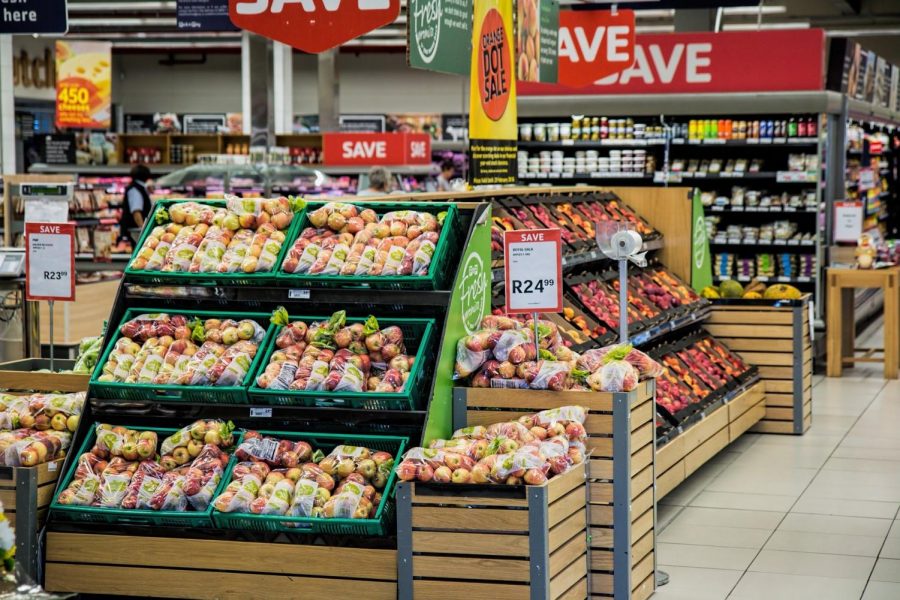Column: Long-term economic benefits result from plant-based diets
November 14, 2019
As a student, I always look out for cheap prices when I go grocery shopping. That recently changed when I began buying alternative plant-based meats. Even though my food budget has gone up slightly because I now pay a small premium for my new protein source, the societal impact is absolutely worth the price. My decision to pay more for protein is part of a bigger movement that paves the way for a new food economy. In the near future, we will see a complete shift in the food market, and as environmentally-conscious students, we should look to buy plant-based protein instead of conventional meat, even if it requires a slight change to our grocery budget.
After my first year at Northeastern, I moved into an apartment with a kitchen and opted out of a meal plan. I have never really budgeted or shopped for groceries until now, since I have had the privilege of having parents that love to cook. When grocery shopping at Trader Joe’s and Whole Foods, I was struck by the vast availability of innovative plant-based protein offerings. The choices of plant-based chorizo sausages, burgers and bacon with qualities comparable to real meat amazed me. I started off buying half plant-based and half conventional meat, but now after a few months of transitioning, I eat plant-based protein almost exclusively.
There is an increasing demand for plant-based protein mainly because of its positive impacts on the environment, its health benefits and its contribution to reducing animal cruelty. Those are some of the same reasons I decided to start eating plant-based protein. Studies show that plant-based diets are the single biggest way to reduce your carbon footprint. Plant-based diets also yield miraculous results for people with cancer and type 2 diabetes and are proven to have more health benefits compared to meat. Of course, if we eat plant-based product, we eliminate the inherent animal cruelty issues that come with meat consumption.
Given the rising demand for plant-based products, we have seen companies such as Oatly and Beyond Meats experience tremendous economic growth. Oatly increased their revenue in the United States by over 550 percent this year alone and Beyond Meats has seen a tremendous increase in market cap and revenue. This shift toward plant-based products is a true demonstration of positive market forces. Transitioning market forces like these will lead to less air pollution, healthier diets and reduce animal cruelty in agriculture.
The success of these companies is bigger than their independent success, but it is also a sign that American capitalism is working. Innovation aligned with customer demands in the food sector will reduce climate footprint, animal cruelty and diet-related diseases. This positive market transformation shows the glory of laissez-faire and the American market economy.
Fast-paced ventures in the alternative protein sector are forcing big players in the meat industry like Tyson, Nestle and Kraft to get on their feet and change their operations to a more sustainable direction. Tyson Foods, the largest United States food company and the world’s second-largest meat processor, recently announced the company will hire its first-ever head of alternative protein, Justin Whitmore. In an interview with McKinsey & Company, a leading consulting firm, Whitmore dismissed the idea that alternative protein is just a fad, which forces companies like Tyson to operate more like start-ups and invest in alternative protein.
This shift in the food market and consequential increase of new ventures will increase the competition in the oligopolistic food sector. The few companies dominating the food sector have had harmful effects on several societal stakeholders, but this transition will have an adverse effect. Increased competition will lead to well-proven positive results of a competitive industry, such as increasing workers’ rights and wages, innovation, customer value and prices.
The more plant-based proteins we buy will eventually lower the price of these products and make it accessible to a broader market, resulting in a greater impact. A major reason plant-based meat alternatives are so expensive is because their main ingredients are less established than the supply chains of traditional animal protein, resulting in higher production costs for the companies. If we purchase plant-based products, companies will increase their revenue and decrease their prices in accordance with the effects of economies of scale, creating a greater impact. It will also make it easier for entrepreneurs to start new alternative meat ventures as supply chains become more established.
The growing appetite for plant-based diets will have substantial foreseeable effects on the sector for consumers, workers, the economy and the planet. However, we must start by paying a small premium to enable this change. If we as students want to be part of this movement, we should encourage this transformation by buying plant-based meat and setting an example for the next generation.







